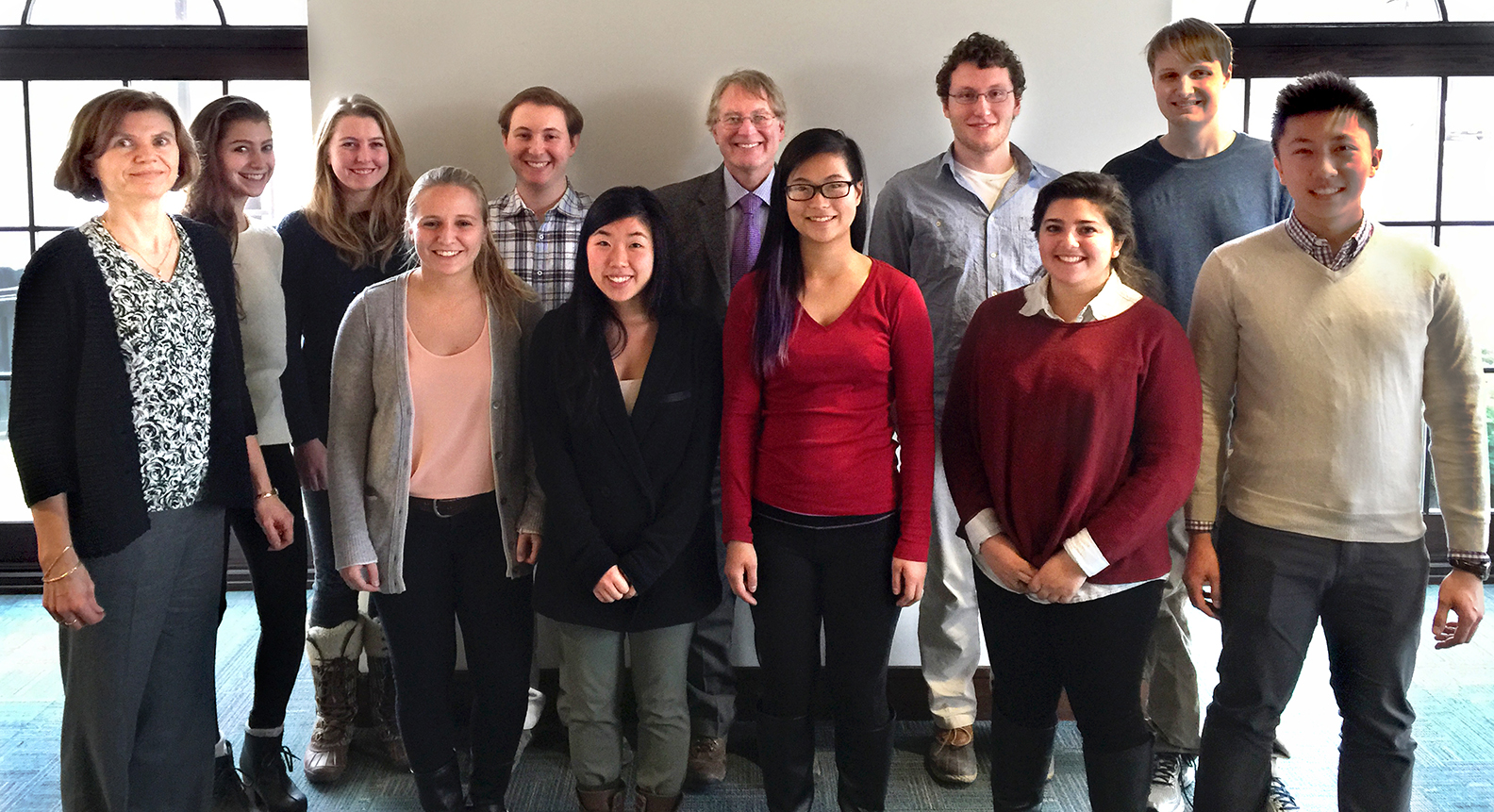
Ken A. Dill, Distinguished Professor of Physics & Chemistry at Stony Brook University, visited Hamilton on Dec. 4-5, as the College’s second Robert S. Morris Class of 1976 Visiting Fellow.
Dill gave two well-attended lectures, "The Deep Innovation Engine of Science in America" and "A Physical Chemist's Look at How Cells Grow and Evolve." In the first lecture he emphasized the idea that we don’t always know in advance what technologies will be transformative, and their benefits may be realized in disciplines unrelated to the fields that generated them. Therefore, it’s important to continue investing in deep innovations.
In the latter presentation, Dill did a tour de force focused on demonstrating the role of proteins in setting limits on how fast cells can grow and evolve. He connected ideas and data from different areas of physics, biology, and chemistry in a visionary way to reveal how the complex behaviors of cells are deeply intertwined with protein properties. This lecture illuminated cell biophysics as an emerging research field that is very promising and has applications in health and medicine.
A graduate of MIT, Dill obtained a Ph.D. from the University of California, San Diego. He did post-doctoral research at Stanford University in the lab of Nobel Laureate Paul Flory, well known for his work on polymers and macromolecules. Dill worked at the University of California San Francisco from 1983-2011 in the department of pharmaceutical chemistry and was elected to the prestigious National Academy of Sciences in 2008.
Dill is the founding director of Stony Brook’s Laufer Center for Physical and Quantitative Biology. According to Dill’s website, his research group focuses on understanding the physical properties of proteins, and using this knowledge to “contribute to computer-based methods for predicting protein structures, dynamics, conformational changes and their biological mechanisms.”
Throughout his visit, Dill spoke about the value of a science education in preparing students for the future. He participated on a career panel for chemistry and biochemistry students at the Sadove Student Center. Other panelists included Jason Ambrosius, immunoassay manager at ICON; Yan Liu, research chemist at Indium Corporation; and Hamilton Professor of Biology Herm Lehman. Professor Myriam Cotten served as moderator.
During the panel, Dill encouraged students to use their college years to challenge themselves and explore new areas. He discussed the importance of building over time a story that is unique and revealing of one’s passion. Dill visited Professor Max Majireck’s organic synthesis and human health class, and evaluated student research presentations in Professor Myriam Cotten’s biophysical chemistry class. The students had studied Dill’s research throughout the semester and wrote proposals extending his current interests. The presentations featured these proposals and Dill made thorough comments to help improve the scientific content.
The Morris Fellowship fund was established in 2013 by Charter Trustee Robert S. Morris ’76, P’16,’17. The purpose of the Fellowship is to bring to campus a distinguished “scholar with specific emerging topic expertise in math or the sciences in order to enhance current academic offerings.”
